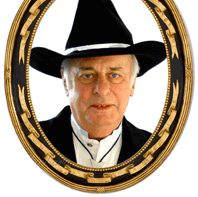Local enforcement of federal and state liquor laws has long come with a big swig of hypocrisy.
The 18th Amendment to the Constitution, which banned the production, transport and sale of “intoxicating liquors,” was repealed by the 21st Amendment in 1933, but we North Carolinians can take great moral pride in the fact that, to this day, our honorable state has never voted to completely repeal Prohibition.
North Carolina had imposed Prohibition in 1909, a decade before the 18th Amendment was ratified, and in 1923, the Turlington Act brought state law in line with the federal legislation, making it illegal “to manufacture, sell, barter, transport, import, export, deliver, furnish, purchase or possess intoxicating liquor.” You could consume alcohol in your home, but the act did not explain how you could legally buy it and get it there.
This act, by the way, is still on the books and helping keep North Carolina dry.
In 1935, two years after repeal, beer and wine were permitted in a handful of Tar Heel counties, and local option laws allowed legal sales of alcohol to proliferate by referendum.
Meanwhile our teetotaling, temperate town was awash in alcohol, thanks to the liquor haulers and a diverse and multifaceted distribution system.
It was very much a class system. At the bottom of the chain were, of course, the poor and minorities: the “sinners” of song and prayer.
They frequented the establishments on Lexington Avenue, “The Block” on Eagle Street, Blood Alley behind the Glen Rock Hotel, the beer joints near Chicken Hill and the river. They even purchased alcohol from the back of a pickup truck at the stockyard. You could buy liquor a shot at a time, drunk from a common glass.
Winter or summer, it wasn’t unusual on these mean streets to see men wearing long overcoats with many pockets sewn into the lining. These “pocket bootleggers” did a brisk business selling “bat wings” (half-pint bottles of either store-bought or white whiskey).
There was also a very convenient way to have booze delivered to your home, so you didn’t have to frequent those places and your preacher wouldn’t see you buying alcohol. It’s probably still the most popular system for delivering alcohol to those who don’t want to make a trip to the liquor store, particularly in the mostly dry counties to the west of us.
If you don’t believe me, call a taxi, give him 50 bucks and tell him you want a loaf of bread, a carton of Camels and a fifth of Jack Daniel’s and see what comes to your door. Be sure to tip generously in order to ensure future service.
Hotels also made it easy for their guests to obtain alcohol: All you had to do was call the bell desk. Even though Fred Seeley, the Grove Park Inn’s autocratic manager, was a teetotaler whose establishment didn’t serve alcohol, guests from more sophisticated environs still had no trouble accessing this service.
Many years ago I spoke with the elderly black gentleman who ran the inn’s antique elevator. “I used to get Mr. Scott’s liquor for him every day,” he bragged (meaning F. Scott Fitzgerald).
The next level of dispensaries served the rogues, the winking righteous and the enforcers who had to maintain at least some semblance of temperance in order to keep their jobs. Several of these so-called “private clubs” had names implying that they were somehow linked to military service. Apparently membership was limited to ex-military — including anyone who’d ever heard about World War II or the Korean War and who was looking for a proper watering hole.
Other private clubs were named after very large, hairy animals with antlers; I think membership there was reserved for people who’d seen one of these beasts.
Then there were the so-called “supper clubs” where diners who knew the management might obtain an illegal mixed drink. Some were also called “juke joints,” because the entertainment came from a large, glitzy jukebox.
At the top of the social ladder were the very private country clubs. Only those “law abiders” who sat in the front pews on Sunday morning were admitted to these hallowed chambers, where they could purchase a proper libation despite great public denial that such activity took place.
This very structured hierarchy created the chain of enforcement.
The “law-abiders” enacted the alcohol laws and levied judgments on behalf of the temperate community.
Meanwhile, energetic enforcers busted many of the establishments frequented by the “sinners” while ensuring that their own hooch havens weren’t molested. They also apprehended and admonished the “sinners” themselves who, with few exceptions, became the unwilling inhabitants of the drunk tank. To obtain their release they were prosecuted, judged and punished by the “law abiders.”
My next offering will delve into sin at the supper clubs. Stay tuned.






Congratulations overcoming immoral government regulation.
Mr Sternbergs
I am a scholar of Black Mountain College and am teaching for the fall semester at UNCA. The class is researching the two bars at which BMC students hung out: Roy’s Inn and, later, Peek’s Tavern.
I am curious to know whether you know anything about these two establishments. There is also a mention in photos of “Allison’s”.
Mary Emma Harris